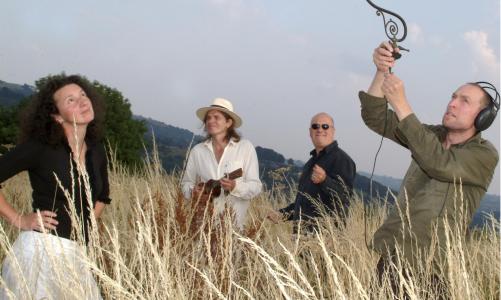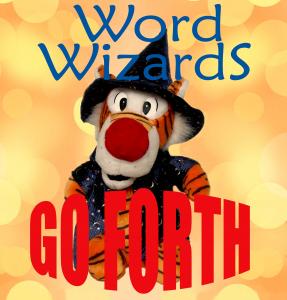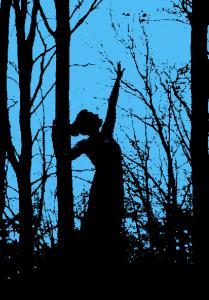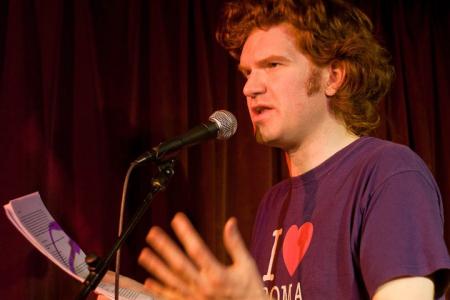Spoken Word Reviews
AN EVENING WITH IAN MCMILLAN AND ROY FISHER - Packhorse Poets
Packhorse Inn, Crowdecote
Wednesday 6th July
Roy Fisher was born in Birmingham but has lived in the Peak District for many years. He is happy to be described as provincial - though that is not to suggest that his work is small or narrow. Now turned 80, he is undoubtedly one of the major English poets of the past 60 years. How lucky we were then to have the chance to hear him read selections from his most recent collection - Standard Midland - to an audience of just 40 in a small room, in a pub in the beautiful setting of Crowdecote.
Fellow poet Paul Batchelor revieiwng Standard Midland wrote that "Weighty subjects are counterpointed by a conversational tone" and hearing Roy read from the collection this seeems exactly right.
The afterlife back thenwas fairly long:
nothing demented like forever,
nothing military. The afterlife
would come to the party
In another poem he draws on the Malagasy practice of exhumation and second burial.
With liquefaction almost donewe hold our cherished ones
in our arms. From the grave-clothes
they fall in gobbets as dog-food
falls from the can.
If this makes his work seem grim then that is to misrepresent him. His view of life and the natural world - animate and inanimate - seems unsentimental and respectful, borne out of a deep love for what he knows.
Barnsley's Ian McMillan is not the most obvious companion to set alongside Roy Fisher. Roy, quietly reflective, Ian filling the room with joyful exhuberance. There is little point trying to describe the full-on McMillan express train experience. You had to be there. For the first half of his set he described how some of his poems came about from his observation of those around him - and then read the poems. He was also joined by Times and Private Eye cartoonsist Tony Husband who illustrated some of Ian's poems. The final part of the show - and I choose the noun deliberately - involved the 'live' construction of the history of the Packhorse Inn. Ian, helped by audience, wrote a verse and a song while Tony drew furiously to illustrate. The laughter and action were non-stop.
Quite how the Packhorse Poets assembled such a stellar cast for this tiny venue is a mystery but let's not worry about that. This was 5 star entertainment and you probably missed it. Sorry about that - this may well be my Fringe 2011 highlight and it is only day one.
Keith Savage
ANN ATKINSON & THE PACKHORSE POETS - Packhorse Poets
Packhorse Inn, Crowdecote, 20th July 2011
After the success of Ian McMillan and Roy Fisher, the Packhorse Poets have produced another superb event featuring Ann Atkinson, Derbyshire's Poet Laureate.
The evening got off to a great start with six of the Packhorse poets reading their own work. I enjoyed Paul Walker's sense of the absurd in his tribute to Spike Milligan, Sue Gaukroger's wry blacksmith's response to being painted by Joseph Wright of Derby, a tribute to the pyramidal view of Shutlingsloe from Sheena Barnes, 'my hack my packhorse' a neat haiku by Doreen Graham, Susie Watkinson's evocative sounds of luxuriating in the bath, and the very personal nature poems of Margaret Black
After a brief interval, it was time for Ann Atkinson. It must be an advantage to a poet to have a good speaking voice and the clarity of Ann's silvery tones added much to the experience. The poems included epiphanies of learning leading to freedom in The Gift and Drawing Water, responses to nature, with wonder in The Bats and more ambivalently in Ferreting, and experiences shared with friends such as the warm and witty New Allotment. An excellent newer poem Properties of Water evokes mist in the Derwent valley and the hills appearing as islands above it.
Epitomising the evening was Driving Home from Grasmere, a poem dedicated to Roy Fisher, it's an account of a journey home with a friend, passing Peak landmarks and a striking image that stays in the mind:
we rounded the bend and stark on the crest
three horses were massive against the sky.
Something burned deep in the mind,
both of us, silent and clasping hands.
The evening closed with an Open Mic session, it was a supportive atmosphere and the five poets who contributed at this stage were listened to appreciatively. John Sewell's two sonnets from a sequence recounting an affair were most moving.
I left the Packhorse in the fading light to see Chrome Hill just as described by Sue Gaukroger in a poem earlier and feeling as if I'd had a wee treat. While Ann Atkinson was undoubtedly the star of the show, the standard of poetry throughout was excellent. Long may the Packhorse Poets continue in the Fringe.
Steve Walker
FRINGE READINGS - Festival Fringe Readings
The annual Fringe Readings provide an oasis of calm among the racier goings on of the Fringe. People seeking refuge from the hurly burly outside can visit the Old Hall Hotel for a half-hour performance of a short story or poetry by a variety of readers.
For the first of the 2011 readings, Caroline Smith lent her cultured, well modulated tones to The Man Upstairs, an amusing story of a romance between a couple of struggling artists by PG Wodehouse.
Each recitation is different, so there's no knowing what treats are in store for the rest of the Fringe Readings. Why not just pop in and find out for yourselves?
Robbie Carnegie
GLASSBALL PRESENTS - A LYRIC IN LIMESTONE - Mark Gwynne Jones and the Psychicbread

Mark Gwynne Jones and The Psychicbread performed 'A Lyric in Limestone'to a captivated audience at the Devil's Arse, Castleton on Saturday 16th July. Glassball Art Projects commissioned them to write works inspired by various sites in the Peak National Park. The idea underlying their creativity was Sir Arthur Conan Doyle's imagining that the area is hollow and if you struck it with a giant hammer it would boom like a drum.
It was in fact the booming of a drum which the 100 or so people in the audience first heard as they walked or rather crouched into the Devil's Arse. When the audience had assembled Mark gave an introduction and characteristically blurred the boundaries between ordinary speech and poetry.
Throughout the performance we heard poems inspired by numerous sites which included Bleaklow, Matlock Bath, Wardlow Miers, Monsal Dale and a bridge on the River Wye and the site of the Devil's Arse itself.
When performing the poems the listeners were able to focus on these familiar places and the use of imaginative and surrealistic language gave us deeper insights into the nature of the subject matter.
The Psychicbread enhanced the drama of the poems with their playing of numerous instruments including the banjo, guitar, sitar, keyboard and percussion. The rhythm of the arpeggio figures on the guitar and the sensitive drumming created at times an hypnotic effect. Mark played a few notes on the flute which gave an eerie effect in the echoey underworld where it took place. The sitar may have been an unusual instrument to be played in relationship with Monsal Dale but it worked marvellously in the context of the poem.
A very poignant moment in the show was when the Derbyshire poet William Newton (1750 -1830) was quoted. The poem was about the thoughts a father held as his dead son hung for public display on a gibbet in Wardlow Miers. The poem is said to have led to an end of gibbeting in Derbyshire thus testifying the power of poetry in those days to move public opinion.
Another of the many spine-chilling moments was Mark's reflections on a B29 bomber crashing in the High Peak in 1948. Those who know Bleaklow where it crashed would have been amazed how successfully the group conveyed the bleakness of the summit of Bleaklow.
Although much of the subject matter was sombre in nature, Mark's effective use of humour throughout the performance added a lighter note.
It is not surprising that this tremendous show was well attended and many of the audience will want to attend more of Mark Gwynne Jones and The Psychicbread gigs.
Roger Horvath
GO FORTH AND RECITATE! - Word Wizards

19th July 2011, Grove Hotel
The Fringe Poetry Slam is an annual event which has grown out of a monthly Slam evening, at the same venue. In a small, upstairs lounge, poets perform against each other, judged by members of the audience, for a prize - the coveted Slam coffee mug. The poets have 3 minutes, are not allowed to run over, and the audience are encouraged to influence the judges by clapping, shouting and hooting - with hooters supplied for the purpose.
The couple behind this entertaining concept is Rob and Lesley Stevens, long-time Buxton residents. Rob, front man and gifted performer, hosts while Lesley the "brains behind the brawn" does all the time-keeping and adding up. It's a professional and sleek operation which includes a screen behind the poets, advertising "Word Wizards", disco-lights, a microphone and lectern, scoring pads for judges and not forgetting the sparkly "magic" velvet bag from which names of poets are picked by the audience.
This year, there were 8 performers, most of whom are regulars at "Word Wizards". In no particular order, they were: Rob Stevens, Linda Goulden, David Barrow, David Siddon, Gary Carr, Deirdre Costello, Jack Reagan and Marilyn Mattieson.
Of the 5 audience judges, 3 are professional poets. They were Cathy Grindrod (the first Derbyshire Laureate), Jeremy Duffield and Janette Sykes.
So, to a total audience of about 35, including performers and poets, there were 4 rounds of 8 poets. This was then whittled down to the final 3, who had 2 more rounds and now 5 minutes each.
The atmosphere was friendly and supportive. As Rob Stevens puts it, these events are "less of a slam, more of a gentle slap!" There was a huge range of poetic subject matter, style and delivery - all original material, much of it very funny, most of it (though not all) rhyming, and some quieter, more personal pieces.
Deirdre Costello performed all her poems from memory, including the very popular, humorous "Going to the Slam" which really got the audience going. Some other highlights were David Siddon's poignant look at a war veteran in an old people's home. He also offered one about lead miners, using Derbyshire dialect. There was a fabulous, historical poem by Linda Golden called "The Sluggard Waker" and the simple, quirky look at the life of a chimney by David Barrow. There were some great stories with a twist, such as "Bloody Julie" by Rob Stevens and a funny take on how he met his wife - "Any poet in a storm" by Gary Carr. There were also some moving, personal poems, such as Marilyn Mattieson's account of moving from town to country and Linda Goulden's look at loneliness in "Two". The poem that brought the house down, however, was Jack Reagan's "Thesaurus" which was both original and hilarious!
At 10:15pm, Jack Reagan was declared the winner, with Rob Stevens in second place and Linda Goulden a close third.
Well done to everyone who took part!
Karey Lucas-Hughes
LOVE AND LOSS: TALES FROM IMAGINED LANDS by Kat Quatermass - Dreamfired Productions

Kat Quatermass creates an intricate tapestry of classical and folk stories woven together by an arresting background narrative and carefully plotted language. The individual stories are wide ranging in their setting, each developing in a slightly different style and tone and circling the issues of trauma and longing embedded in the experience of 'love and loss.' Two particular stories stand out, that is, the story of Echo and Narcissus and the tale of the Frozen Lake, which evoke tragic and primeval desire through beautifully constructed poetics and narrative structuring.
As a performer, Quatermass is delicate and visceral in equal measure, creating a graceful web of body language and softly voiced storytelling. The single problem with the performance was the occasional stumble, however, this may be forgiven due to the strength of the performance as a whole. Some of the set dressing may, too, have been unnecessary, although this isn't an important issue as the audience member's eye is drawn so thoroughly towards the performer.
Overall, a very good piece, perhaps on first inspection quite a niche subject matter but considering the quality of the storytelling involved, even the most grounded person is liable to be taken up and away by the stories.
Charlie Newport
RICHARD TYRONE JONES HAS A BIG HEART - Utter! Spoken Word

Underground Venues, 15th July 2011
Richard Tyrone Jones does have a big heart, figuratively, but also unfortunately literally - and it wasn't doing him any favours. Heart failure may have delayed his first solo show, but it certainly gave him some meaty material for it.
This show was the most thought-provoking I have seen this year at the Fringe, at times touching yet funny, gruesome yet poetic, informative yet uplifting. Richard Tyrone Jones is a poet and regular of the spoken word scene who at the age of thirty was brought low by dilated cardiomyopathy (and if you think that's hard to say, you should hear his heart condition tribute to Tom Lehrer's Elements song - fantastic).
Richard takes us through his diagnosis, heart failure, surgery, convalescence and recovery, reflecting on what it means to be young and to know what will probably kill you. He does so thoughtfully, with much humour, and emotion not far below the surface. His style is witty and self-deprecating, there is no self-pity and he is unsparing in describing his experiences, occasionally taking his audience to the verge of queasiness. The poems which intersperse the performance are excellent, at times lyrical, at times blunt and to the point, but always accessible and a joy to listen to.
There are a few rough edges to the performance. It is at its best when Richard is relaxed and comfortable and not 'acting' - for example the mimed bike riding is unconvincing. Also, there are a couple of moments when a joke relies on clumsiness with language, "a stabbing pain like, er, a knife in the chest" and "denial/de nile" that don't ring true from a man with such a wonderful felicity with words.
Minor quibbles! Richard Tyrone Jones says he is lucky to be alive. We are lucky too - this is a very promising show and there is so much to say about it that I could go on and on. But that would be silly when you can go and see for yourself - do so and you won't regret it.
Richard Tyrone Jones has a Big Heart is at Underground Venues on Saturday 16th July at 5:30pm and Sunday 17th at 8:30pm.
Steve Walker
THE ART OF THE FAKE - ICV Newton

Ian Newton has moved from the field of forensic medicine to the field of forensic art. As he says, both are about establishing the truth, distinguishing the false from the real. The difficulty is illustrated with a quote from Newsweek - "Of the 2500 known authenticated works by Corot at least 7800 are in US collections alone."
His entertaining talk and slide show takes his audience through a brief history of art forgery visiting some of its more prominent protagonists. First up, the art dealer Lord Duveen, looks like a particularly dodgy used car dealer that I wouldn't have bought a spoon from and yet he became immensely successful and the richest art dealer in the world. His reputational bubble was eventually burst in court but he was one of the "experts" turned to for authentication!
Most amusing to the full house audience were the unlikely trio of Bolton forgers the Greenhalgh family whose astonishing efforts were based on their very talented but failed artist son Shaun. Two lessons become apparent: firstly, the art world is astonishingly easily fooled, essentially because they want to believe the incredible; secondly, most forgers are failed artists with considerable talent and a chip on their shoulder. Although the Greenhalghs netted some £4 million and their house was found by police to contain another £10 million worth of fakes they continued to live in squalor and most of the money was recovered.
Han van Meegeren sold fake Vermeers to Goering and after the war only escaped a charge of treason by proving in his prison cell that he had painted them by painting another. Elmyr de Hory, another failed painter, was ripped off by his intermediary and when finally uncovered committed suicide. Some notorious modern fakers have emerged from prison to be offered television deals but in general the lot of a forger does not seem to have been a happy one. But then, these are the ones we know about aren't they?
There are, I'm sure, more lectures to be given on the techniques employed by forgers and those used to expose them but they would entail a full course which would indeed be fascinating but perhaps not appropriate for a Fringe. Instead Ian closes his talk with advice to those of us unlikely to be in the market for fake Picassos (interesting point - his signature is easy to forge, it's on every model) on how to spot dishonest "signed" prints on Ebay. That I'm afraid is about my level.
John Wilson